Planaria
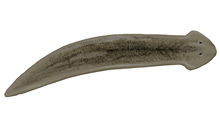
Common flatworm
Dugesiidae
Macroinvertebrates are good indicators of biological quality, as they are easy to sample and require only relatively simple taxonomic identification. They are also widespread in most areas where water is present.
These creatures are used as quality indicators in the majority of rivers in the world, as they respond to environmental changes in a very direct manner and they facilitate the assessment of any disturbances or modifications in rivers and wetland areas.
If water quality is good, there are a lot of species, however, if it is bad, there may be a lot of individual animals, but only a few species.
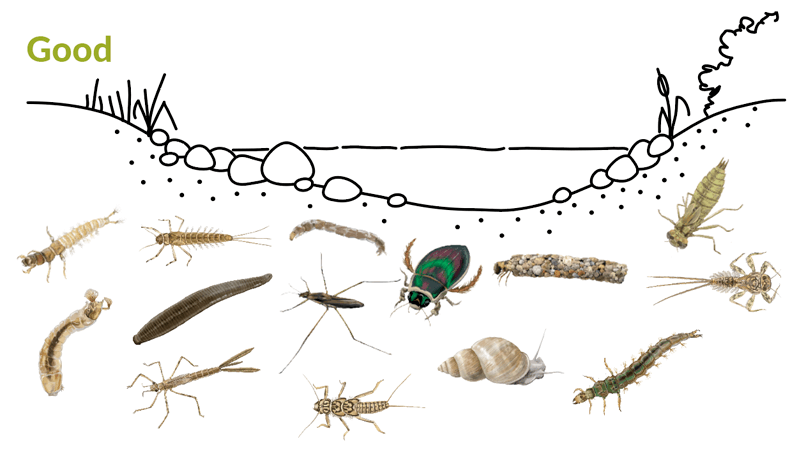
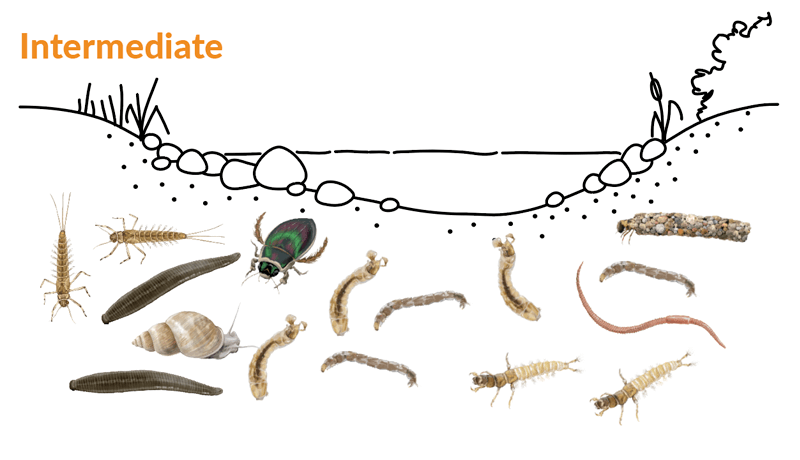
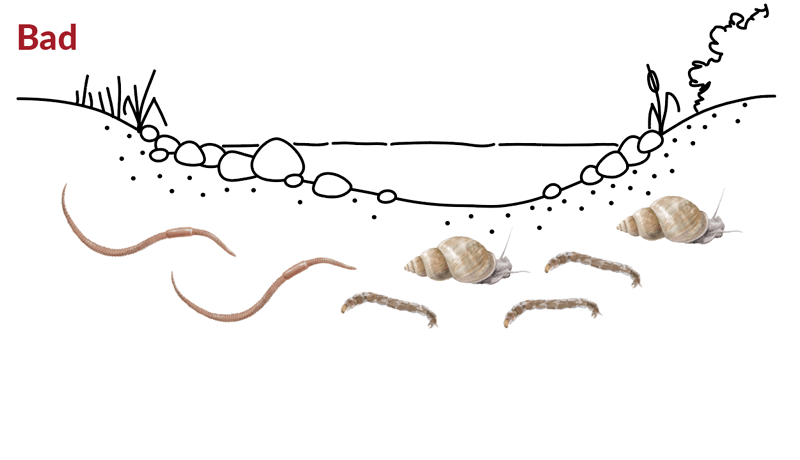
Aquatic macroinvertebrates are large animals (over 500 micrometres and without an internal skeleton) that live in continental aquatic ecosystems (rivers, ponds, lakes and estuaries, etc.).
They are distributed throughout different environments in bodies of water: under stones, in calm waters, in rapids, and waterfalls, among underwater plant life, etc.
They include aquatic and semi-aquatic organisms as well. One example of semi-aquatic organisms are heteropterae – more commonly known as pond skaters; these creatures walk, slide and jump on the water’s surface. There are in fact very few macroinvertebrates that are truly aquatic throughout their entire lives, such as sponges, molluscs and crabs.
Most, especially insects, caddis-fly larvae and dragonflies, live in the water only during their larval or nymphal phase.
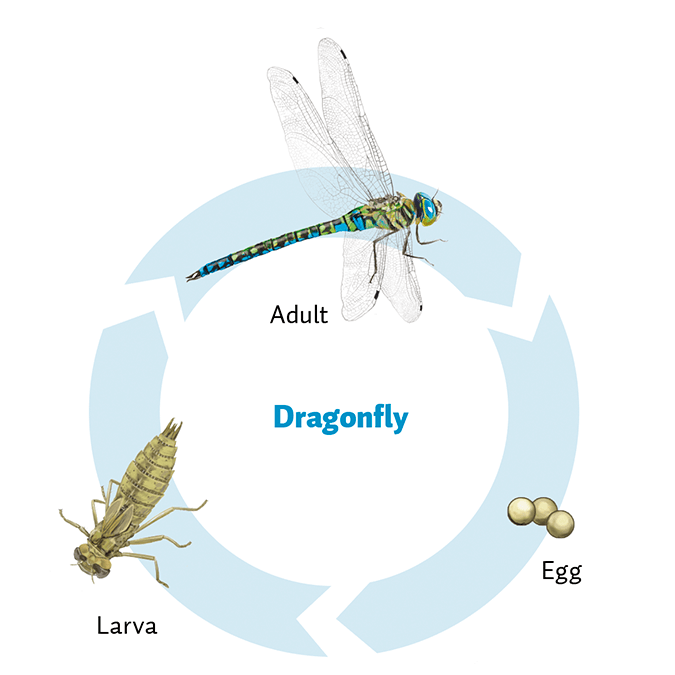
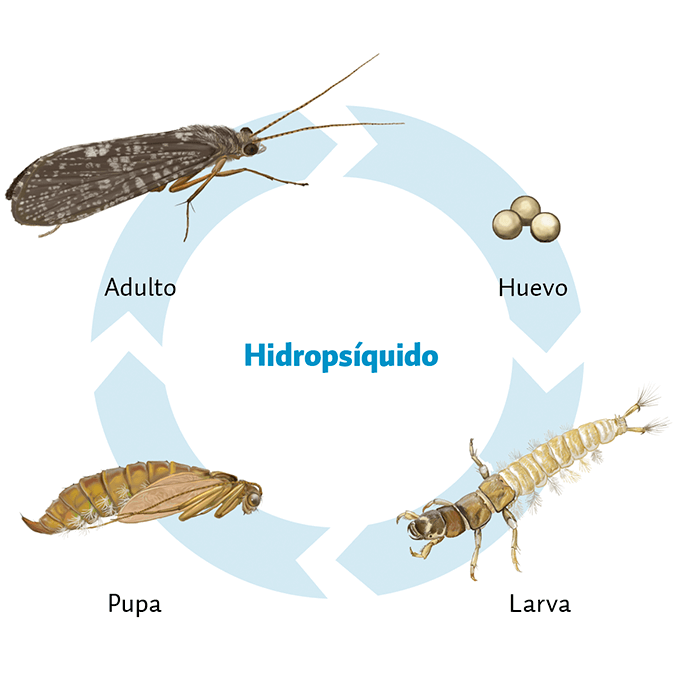
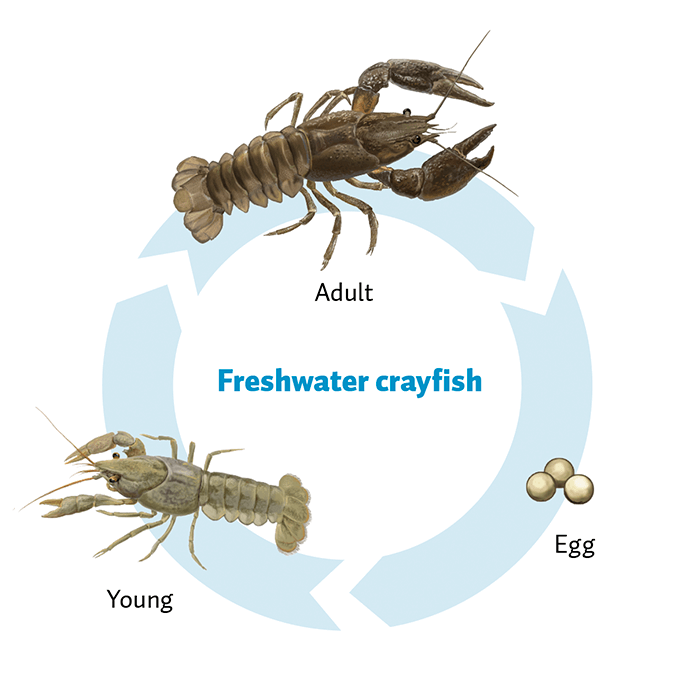

Common flatworm
Dugesiidae
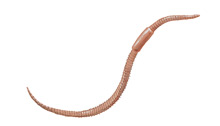
Earthworm
Lumbricidae
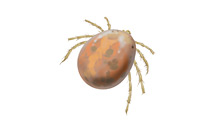
Water mite
Hydracarina
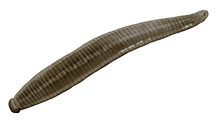
Leech
Erpobdellidae
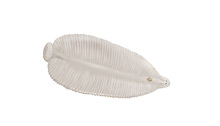
Freshwater jawless leech
Glosiphoniidae
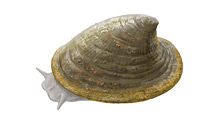
Ancylini
Ancylidae
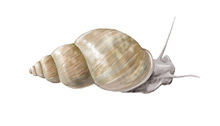
Pond snail
Lymnaeidae
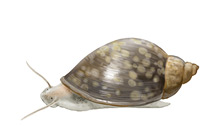
Bladder snail
Physidae
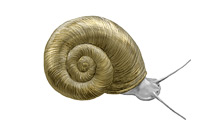
Ramshorn snail
Planorbidae
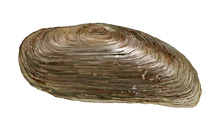
Freshwater mussel
Unionidae
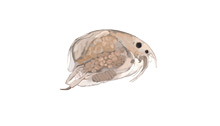
Water flea
Cladocera
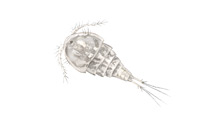
Copepod
Copepoda
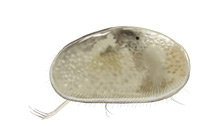
Ostracod or seed shrimp
Ostracoda
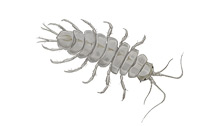
Assassin fly
Aseliidae
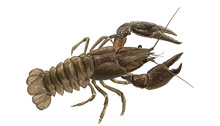
Freshwater crayfish
Astacidae
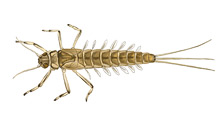
Small mayfly
Baetidae
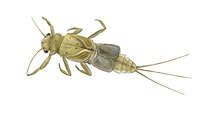
Small squaregill mayfly
Caenidae
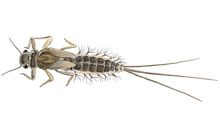
Prong-gilled mayflies
Leptophlebiidae
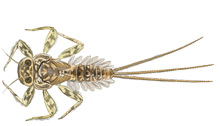
Stream mayfly
Heptageniidae
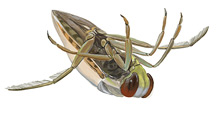
Backswimmer
Notonectidae
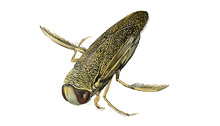
Lesser water boatman
Corixidae
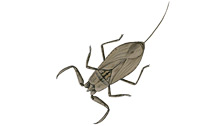
Water scorpion
Nepidae
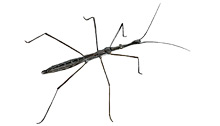
Marsh treaders
Hydrometridae
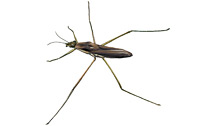
Pond skater
Gerridae
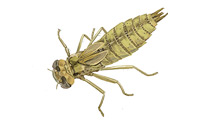
Aeshnid
Aeshnidae
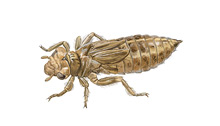
Club-tail dragonfly
Gomphidae
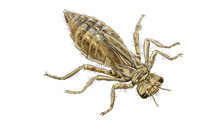
Skimmer or percher
Libellulidae
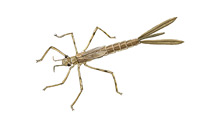
Broad-winged damselfly
Calopterygidae
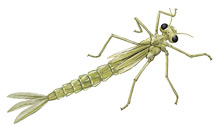
Spreadwing
Lestidae
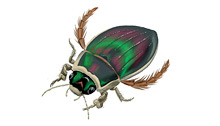
Predaceous diving beetle
Dytiscidae
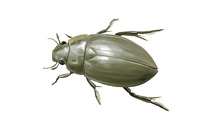
Water-scavenger beetle
Hydrophilidae
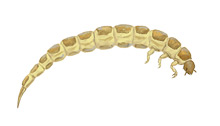
Haliplid
Haliplidae
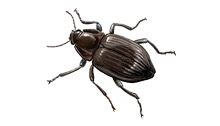
Riffle beetle
Elmidae
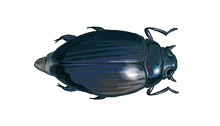
Whirligig beetle
Gyrinidae
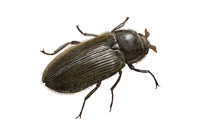
Long-toed water beetle
Dryopidae
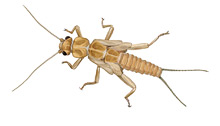
Spring stonefly
Nemouridae
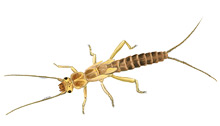
Needlefly
Leuctridae
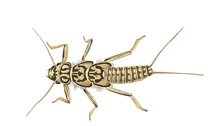
Stonefly
Perlidae
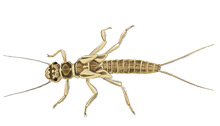
Springfly
Perlodidae
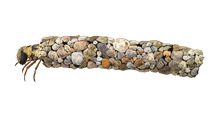
Caddis fly
Limnephilidae
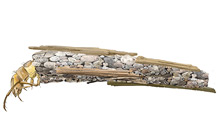
Long-horned caddis fly
Leptoceridae
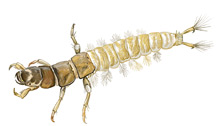
Net-spinning caddis fly
Hydropsychidae
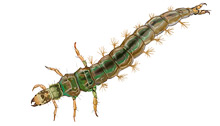
Free-living caddis fly
Rhyacofilidae
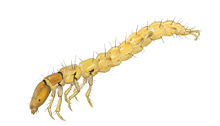
Finger-net caddis fly
Philopotamidae
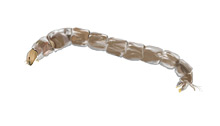
Lake fly
Chironomidae
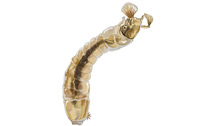
Black fly
Simuliidae
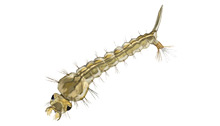
Mosquito
Culicidae
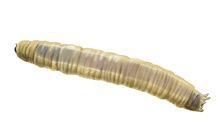
Crane fly
Tipulidae
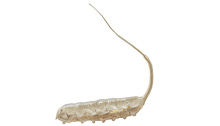
Hoverfly
Syrphidae
Illustrations: © Toni Llobet